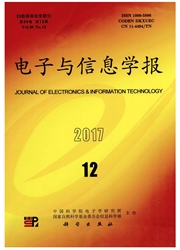

 中文摘要:
中文摘要:
线程级推测(Thread-Level Speculation, TLS)是多核上一种加速串行程序的线程级自动并行化技术。循环具有规则的结构并在运行时占有大量的执行时间,因此循环是挖掘并行性的理想对象。然而,选择哪些循环并行才能提高程序的加速比是一个很难决定的问题。为了解决该问题,该文提出一种基于性能预测的循环选择方法。基于输入训练集获取程序预执行的剖析信息,同时结合各种推测因素,构建了循环结构的性能预测模型。预测结果定量评估了循环推测并行的加速比并决定该循环在运行时是否适合并行。实验结果表明,该文提出的方法能有效地预测循环并行时所蕴含的并行性,并依据预测结果准确地选择具有并行收益的循环推测并行,最终 Olden 基准测试集加速比性能平均提升了12.34%。
 英文摘要:
英文摘要:
Thread-Level Speculation (TLS) is a thread-level automatic parallelization technique to accelerate sequential programs on multi-core. Loops are usually regular structures and programs spent significant amounts of time executing them, thus loops are ideal candidates for exploiting the parallelism of programs. However, it is difficult to decide which set of loops should be parallelized to improve overall program performance. In order to solve the problem, this paper proposes a loop selection approach based on performance prediction. Basing on the input training set, the paper gathers profiling information during program pre-execution. Combining profiling information associated with the program and various speculative execution factors, the paper establishes a performance prediction model for loops. Then, based on the result of prediction, the paper can quantitatively estimate the speedup of loops and decide which loops should be parallelized on runtime. The experimental results show that the proposed approach effectively predicts the parallelism of loops when speculative execution and accurately selects beneficial loops for speculative parallelization according to the predicted results, finally Olden benchmarks reach 12.34%speedup performance improvement on average speedup.
 同期刊论文项目
同期刊论文项目
 同项目期刊论文
同项目期刊论文
 期刊信息
期刊信息
